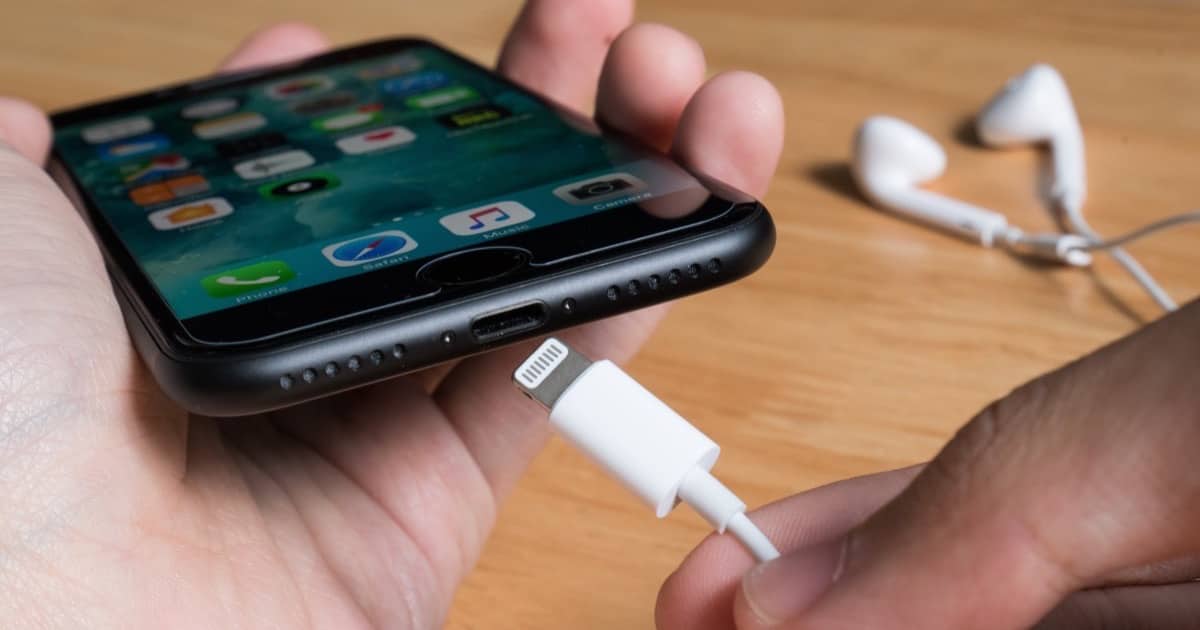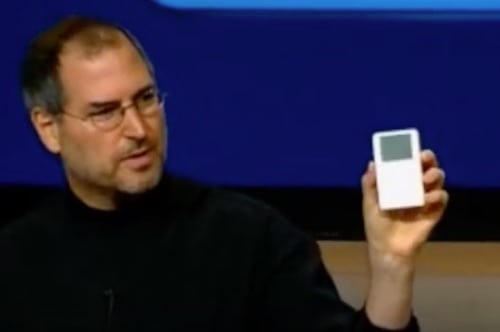Enter our new international giveaway for a chance to win the brand new iPhone 16 Pro.
Cellebrite’s Acquisition Adds Computer Forensics to its Portfolio
Cellebrite, a company specializing in hacking smartphones for law enforcement, has acquired BlackBag Technologies, a company specializing in hacking computers for law enforcement. This will let Cellebrite offer law enforcement an “all-in-one” forensic solution to cover smartphones, laptops, desktops, and cloud data.
It also means offering a broad array of field acquisition capabilities including consent-based evidence collection along with an integrated solution set that provides access, insight and evidence management to facilitate and control large-scale deployments and orchestrate the entire digital intelligence operation.
Cellebrite offers all of these capabilities to law enforcement, but the FBI still wants Apple to create a backdoored version of iOS.
Apple Releases Xcode 11.3.1 With Improvements, Bug Fixes
Apple has released Xcode 11.3.1 for developers with improvements and bug fixes but also with a known issue involving file imports.
Reality Converter App, Online Scam Avoidance – TMO Daily Observations 2020-01-14
Bryan Chaffin and Andrew Orr join host Kelly Guimont to discuss Battery Case Replacements, the AR Converter app, and avoiding online scams.
Rack Mounted Mac Pro Available for Purchase
A version of the 2019 Mac Pro that can be mounted on server racks is now available for purchase starting at US$6,499.
Portable Keychain Apple Watch Charger: $16.99
We have a deal on a Portable Keychain Apple Watch Charger. This charger is small enough for your keyring, and plugs into a USB port to get the power for charging your Apple Watch. It’s $16.99 through our deal.
Apple Brings Reality Converter AR App to macOS
Apple is releasing a beta version of an app called Reality Converter. It helps developers work with USDZ files, an AR file format.
Apple Adds iPhone Battery Case Replacement Program
Apple is launching an iPhone battery case replacement program after a number of customers reported problems with 2019 case models.
Apple TV+ Series 'Mythic Quest: Raven's Banquet' Appearing at PAX South
Forthcoming Apple TV+ series Mythic Quest: Raven’s Banquet looks set to appear at gaming expo PAX South this weekend. AppleInsider reported that the comedy is listed as a registered exhibitor.
Though details are scarce, Apple, specifically “Apple TV+ Mythic Quest: Raven’s Banquet,” is now registered as an exhibitor on a rolling list of PAX South participants maintained on the PAX event website. The expo begins on Friday, Jan. 17 and runs through Jan. 19. The company has yet to confirm an official presence at the popular annual event, but an appearance would not be too far fetched as “Mythic Quest’s” plot orbits the gaming world.
Grindr Shares Personal User Data With Advertising Partners
Popular LGBT dating app Grindr shared personal user data with thousands of advertising partners. Bloomberg News reported that the data included users’ location, age, gender, and sexual orientation.
The service — described as the world’s largest social networking app for gay, bi, trans, and queer people — gave user data to third parties involved in advertising and profiling, according to a report by the Norwegian Consumer Council that was released Tuesday. Twitter Inc. ad subsidiary MoPub was used as a mediator for the data sharing and passed personal data to third parties, the report said. “Every time you open an app like Grindr, advertisement networks get your GPS location, device identifiers and even the fact that you use a gay dating app,” said Austrian privacy activist Max Schrems. “This is an insane violation of users’ EU privacy rights.”
Amazon Donating $690,000 to Australian Bush Fire Relief Efforts
Amazon CEO Jeff Bezos announced on Sunday that, like Apple, his firm will contribute to Australian bush-fire relief efforts. The donation will total $690,000 dollars, CNBC reported.
In an Instagram post on Sunday, Bezos pledged 1 million Australian dollars ($690,000) on behalf of the tech giant — an amount that has faced criticism by some on social media. “Our hearts go out to all Australians as they cope with these devastating bushfires,” Bezos said. “Amazon is donating 1 million AU dollars in needed provisions and services.” The figure was derided by some online, with people comparing the sum with Bezos’ personal net worth.
New iPhone May Have Faster 5G Than we Thought
Well-known Apple analyst Ming-Chi Kuo believes that some models of the next iPhone could offer faster 5G speeds than we expected.
PC Market Grew in Q4 2019, But Mac Shipments Fell
A 5.3 percent drop in Mac shipments was more than offset by the “continued momentum” of iPhone and iPad sales, analysts found.
Apple TV+ Wins First Award, As Billy Crudup Takes Home Critics' Choice Honor
The Morning Show’s Billy Crudup was named Best Supporting Actor in a Drama Series at the Critics’ Choice Awards – Apple TV+’s first win.
How to Avoid Online Scams With This Guide
Emily Long put together a guide on how to avoid online scams, like not clicking links in emails, not sharing passwords, and more.
The basic rule for surviving internet scams is simple: If it sounds too good to be true, it probably is. A little common sense goes a long way to realizing that you aren’t going to suddenly win the Spanish National Lottery when you didn’t even know you had a ticket.
A useful guide.
Tidbits Managing Editor Josh Centers (#6) - TMO Background Mode Interview
Josh Centers is the Managing Editor of Tidbits.com and has published many Take Control (TC) books. He’s the author of Take Control of Apple TV and Take Control of Home Automation. He’s been writing the Take Control books for iOS since version 8, and his latest book is Take Control iOS 13 and iPadOS 13.
In his sixth appearance on the show, Josh and I explored what’s in store for Apple in 2020. We started by looking at the iMac Pro and its possible fate. Then we turned to the mythical xMac, and continued with the MacBook Pro line. In part II of the show, we took a look at the HomePod. Is it a dead product? Then we looked at iPhone (2020) 5G wrinkles. We finished by wondering what new thing Apple might do in 2020.
Attorney General Barr Asks Apple to Break Encryption
Attorney General William Barr has asked Apple to unlock the iPhone used by the shooter in Pensacola, Florida.
EU Wants to Standardize Smartphone Charging Ports
Lawmakers in the European Union will discuss whether smartphone charging ports should be standardized by tech companies.
Adobe Finally Sends One of Its Last Legacy Products Into The Cloud
Content Management System Adobe Experience Manager as a Cloud Service is one of the last Adobe products to have been moved to the cloud.
Regulatory Filing Indicates New MacBook Pro Coming Soon
A recent regulatory filing indicated that a new MacBook Pro could be on the way in the coming months. Apple only released the 16″ model in November 2019. AppleInsider took a look at what’s in the document
The new filings with the ECC include just one new model number, A2289, which is identified as an Apple-branded portable computer and associated spare components. No other details are made public about the model, aside from it being capable of running macOS 10.15 Catalina. It is unknown what the model indicates, as this could refer to an update to any of the MacBook variants available to date. The model number is accompanied by filings for two Apple TV models, using numbers that relate to already-available models. These are most likely to indicate the use of tvOS 13 on the Apple TV and Apple TV 4K. Another line is dedicated to the rackmount variant of the new Mac Pro, which has yet to be made available to purchase by Apple.
Cable Haunt, iPod Timeline – TMO Daily Observations 2020-01-13
Charlotte Henry and Dave Hamilton join host Kelly Guimont to discuss the Cable Haunt malware, and the (rapid) iPod development timeline.
Since iOS 13 Location Advertisers Have Seen Less Data
iOS 13 added a feature to give customers alerts when apps use their location data in the background. And it’s hurting advertisers that use this data.
Chrome and Firefox Ending Notification Permission Pop-Ups
Fed up of getting pop-ups from your web browser asking for permission to send notifications? Chrome and Safari are looking to end that, Wired reported.
Chrome project manager PJ McLachlan wrote in a blog post this week that the company would start limiting the notifications in one of the next versions of the browser, version 80. “Chrome 80 will show, under certain conditions, a new, quieter notification permission UI that reduces the ‘interruptiveness’ of notification permission requests,” McLachlan says. So what does this look like? If you usually block browser notifications, Chrome will put permission requests from websites behind a small notification symbol at the right end of your browser’s URL search bar. On mobile there will be a small alert at the bottom of your browser window, which vanishes after a few seconds, saying that notifications are blocked.
‘Cable Haunt’ Flaw Leaves Millions of Modems Vulnerable
A flaw in cable modems called “Cable Haunt’ puts hundreds of millions at risk from hackers. It requires a patch from ISPs.
The Original iPod Was Created and Released in Less Than a Year, Ex-Apple SVP Tony Fadell Reveals
The original iPod was designed, engineered, and released all in the same year, according to Ex-Apple SVP Tony Fadell.






















